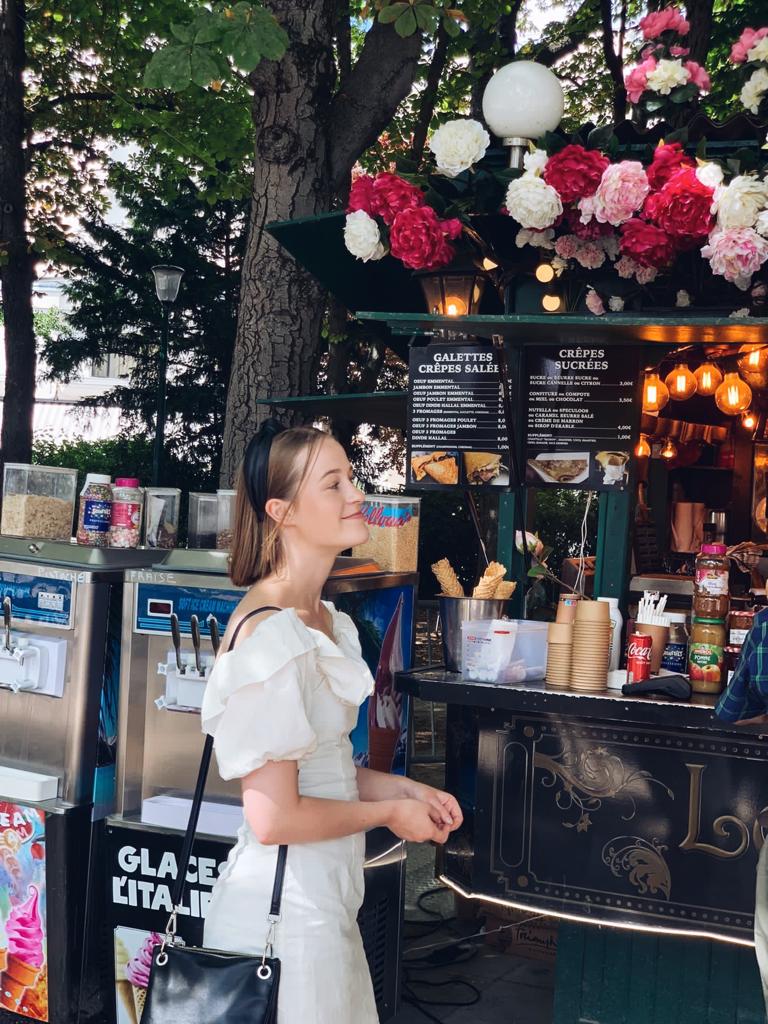
‘We had the opportunity to go abroad for an assignment, and that was really motivating.’ An interview with a Finnish exchange student
Studying at a foreign university for one semester is a once in a lifetime opportunity for students. It can be daunting, but Kiia (23), from Finland, took the plunge. She sat down with 21bis reporter IJsbrand to talk about her experiences in Belgium and how her home university compares to Thomas More in Mechelen, where she spent her exchange semester.
How did you experience your time as an exchange student?
I had a great time all and all. In the beginning it was definitely a lot to take in, arriving in a foreign country, using only English to communicate, trying to figure out everything from grocery stores to busses and from small talk to the way we’re supposed to work in class. But at the end of the exchange I didn’t really want to leave.
I felt totally welcomed, I think it’s because Thomas More and Mechelen are filled with international students, it’s so normal to most people to change to English every once in a while. International students also have a good network via ESN so it was easy to find people to hang out with.
It’s a great opportunity no matter how you look at it
Not speaking Dutch was only a problem in journalism classes, where I was occasionally a little lost. My other courses were in English and had a lot of international students in them. Outside of school it was usually no problem. I knew enough Dutch to, for example, do my groceries without switching to English at the register, but almost everybody speaks some English anyway. A couple of times I ended up in a situation where I didn’t have a shared language with someone, but then always someone else covered me like ordering in a restaurant or talking to my dorm’s cleaner.
What are things you’ve learned here that you wouldn’t have learned without the exchange?
I learned that my home country Finland is somewhat one-sided when it comes to culture, language and ethnicity. In Belgium I met a lot of other international students from all around the world and learned a lot from them about their culture and views of the world. Never before had I really thought how hard it must come to Finland from somewhere else, but now I cannot un-see it.
You just go to another country like it’s nothing!

Compared to your university in Finland, what could Belgian universities do better?
First of all, education in Finland is free. I know it’s also affordable for Belgians, but I think university should always be at anyone’s reach, which it’s not, even in Finland.
The journalism classes in Thomas More sometimes felt to be demanding more than I’m used to. I think in my home university we have a slower tempo with assignments and more feedback before publishing anything on the university’s website. I don’t necessarily know which is better or which is worse for student’s learning, but at least the slower tempo reduces stress among students.
Exams seem to be a lot more important than in my home university. Teachers evaluate us throughout the semester and, depending on the subject, the final exam is not super important. I heard from other students here that many fail several classes each year, even when they try their best and they consider it a good thing if they only fail one class. This is unheard of in Finland. Failing a class usually means that the student didn’t have the time or the resources. Otherwise failing an exam means that the teacher has failed to teach.
What lessons do you think Finnish universities could learn from Belgian ones?
I really liked the fact that Thomas More is so international over all, it was relatively easy to come there as a foreigner and deal with everything in English. I’d imagine Finland is not quite there yet, but of course I can’t be sure because I don’t have that experience.
Make an effort to get to know your destination before you step on the plane
Taking an advantage of the central location of Belgium was a great thing too, Finland doesn’t really have that. For example, we had the opportunity to go abroad for an assignment called “Reporting the City”, and that was really motivating. Like really? You just go to another country like it’s nothing!
How did you like Belgium? Do you think you will visit again?
Coming to Belgium for half a year opened me up to travelling all together. So even though I really like Belgium, I think I want to visit new places, now that I’ve learned that it’s not that hard to travel. However I made some friends in Belgium, so I’ll visit them at some point.
Would you recommend other students to do an exchange semester?
Absolutely. Lotta, a classmate from my school in Finland, convinced me to go abroad saying: “this is the only time in your life when someone else is going to pay you to travel.” She went to exchange at the same time as I did, so we applied at the same time too. She was sure that she wanted to go and that was her reasoning for it. She wasn’t even trying to convince me, she was just saying it and it made sense to me. And she was right. It’s a great opportunity no matter how you look at it. I tend to be not so adventurous, so I needed a little positive peer pressure to decide to go. Even for an experienced traveller, it’s a whole different thing to live and go to university in a foreign country.
What’s your top tip for others considering an exchange?
Make at least some effort to get to know the country and the city of your destination before you step on the plane.
Thank you for your time!
Text: IJsbrand v.L.
Photo: Tapio Haaja via Pexels, RON ROV via Pexels, Michael Day (CC BY-NC 2.0), Montage: IJsbrand v.L.



